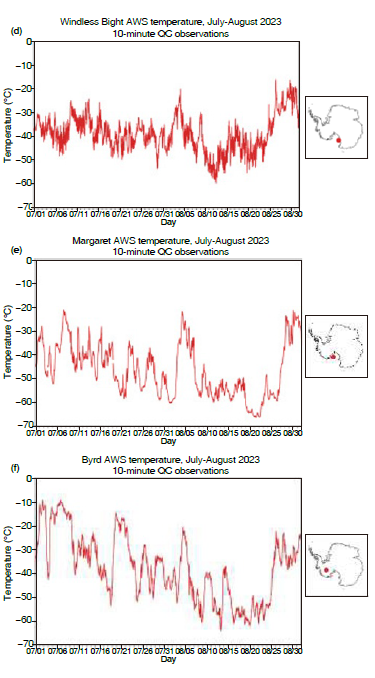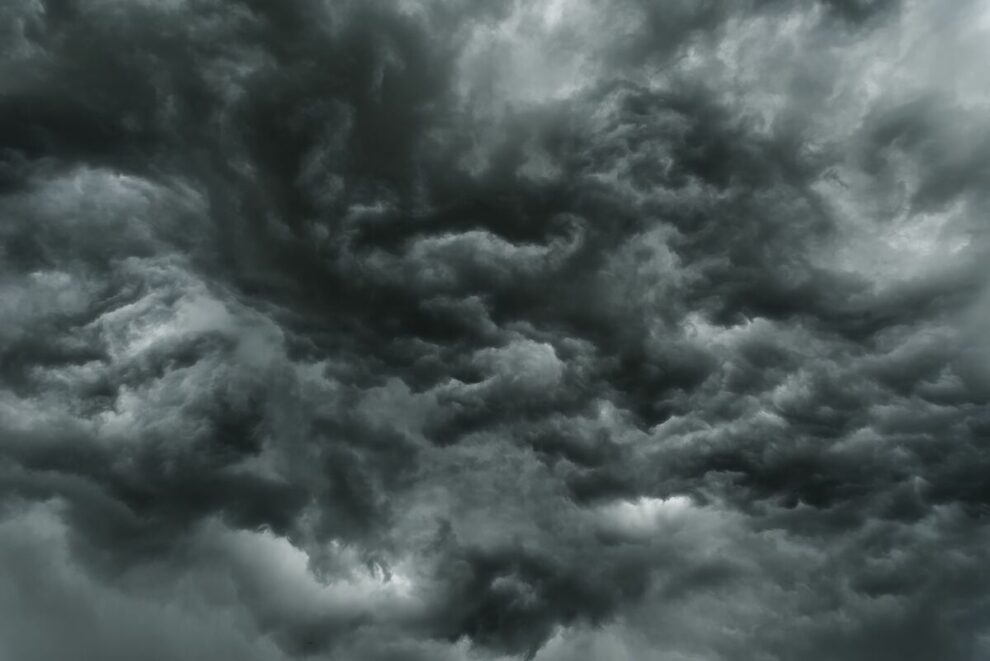We knew it was already of course, which is why we are not joining the rush to purchase seaside villas at McMurdo Station anytime soon. But even for cold Antarctica, 2023 was in a category of its own. H/T NoTricksZone we learned of a recent study by an international team of polar researchers who show that July and August 2023 set all-time cold weather records in the South Polar region. Yes, the place climate alarmists say is warming so fast the ice is about to melt and cause sea levels to surge. Byrd station in West Antarctica, for instance, averaged -45.5C in August 2023, the coldest month on record and definitely below the freezing point of water. And at multiple stations temperatures in July and August 2023 were six to eight degrees below normal. In fact it got so cold at some points that gasoline began to solidify, making flights in and out impossible.
August turns out to be an important month for flights into Antarctica because even though it is extremely cold, being near the middle of Southern Hemisphere winter, the weather tends to be calm ahead of the spring so it’s the time when supplies are brought in for the research season. We’re not sure what researchers do down there, other than sit inside and look out the window at all the snow and deal another hand of cribbage. But obviously they occasionally have to go out and make sure the automated thermometers haven’t been covered over with snow. And come back to report that it’s too cold for it to snow… again… and that the ice has not in fact melted.
Speaking of too cold, aircraft won’t fly when the air is below -50C because the gasoline begins to turn to gel and the hydraulics no longer work. And there were several stretches in the winter months in 2023 when temperatures fell below this cut-off, meaning no one and nothing was getting in or out, as these temperature charts show:

Yikes. The article goes on to describe the atmospheric conditions that gave rise to this remarkable weather. And yes, it’s just weather, it’s not climate, much less proof of global cooling or anything of that sort. But we point it out because if there had been unexpectedly mild weather in Antarctica it would still have been weather but there’d have been headlines in all the world’s press pointing to it as proof of the climate apocalypse.
In this case it wasn’t unusual heat it was record-breaking cold, which is why you didn’t hear about it.



I think you mean jet fuel rather than gasoline, at least for McMurdo and other US Antarctic stations. And they are supplied by military aircraft mostly and military jet fuel general goes down to -60 C. Gasoline, depending on blend and octane, can be from -57 to below -100 C, but not many larger aircraft fly on avgas any longer (and most are probably working the Canadian north).